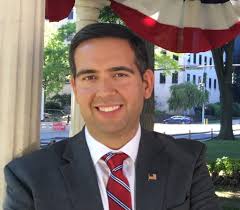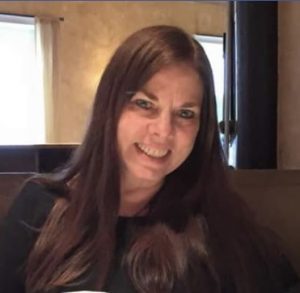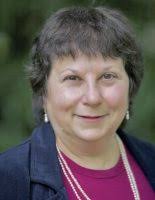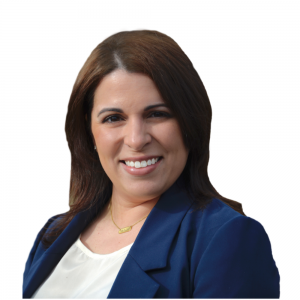White Plains Election Preview 2019
Seven Seek Three Ballot Lines in White Plains Common Council Race
Seven candidates across several political party lines, all vying for three seats on the White Plains Common Council, are on the early voting ballot initiated Oct. 26, and at the polls Nov. 5.
The seven candidates, in alphabetical order, Kat Brezler, Andrew Custodio, AnneMarie Encarnacao, Brian Peroni, Victoria Presser, Jennifer Puja and Nadine Hint-Robinson were presented with several questions last week:
1) What specifically has motivated you to run for a seat on the White Plains Common Council? Have you been involved in politics behind the scenes and were you invited to run or did you approach a political party and ask to run? Is there one outstanding issue that you feel is not being addressed by city government that you need to take to the floor? Or, do you have an overall vision of where you would like to see White Plains in 10 years? (If you have run before or are already on the Council, have your concerns changed since you last ran for office? What issue continues to motivate you to seek office?)
2) Outside market forces often drive development within a community. Zoning Codes and a Comprehensive Plan set the policy and legal parameters for development discussion between government, residents and developers. Does White Plains have adequate guidelines in place for such a discussion? Where specifically would you seek to make updates?
3) The term sustainability relates to environmental as well as financial survival. Do you agree that the two are ultimately intertwined? How do they influence the way you would seek to set policy in White Plains? Can you provide a specific example(s)?
4) When city leaders voted to make White Plains a city rather than a township or other type of municipality, the choice was made that White Plains would not become a “bedroom community for commuters to NYC like most neighboring communities.” As a result, White Plains is a destination location and has commuters traveling in both directions. It is a transportation hub and central to regional corporate/medical /technical growth. As the residential developments increase in number and density in the downtown to meet employee requirements for corporations and local institutions such as a growing hospital complex, how can the unique nature of White Plains neighborhoods be protected?
5) What is open space? Is it public space, green space, active space, passive space – all of the above? In a 10-square-mile city with ongoing development, what are some innovative ways to protect and create more open space?
6) Should there be more public transportation within White Plains? Is the BeeLine bus service enough? Should there be a shuttle(s) linking the outer neighborhoods with the downtown? Would more bike lanes do the same thing?
7) Why should White Plains residents vote for you? If you are promoting change as part of your campaign platform, how do you intend to turn that platform into action?
8) Talk about a pressing issue not mentioned and why it is important to the White Plains community.
We present their reasons for seeking a seat on the White Plains Common Council and their answers to these questions below.
Kat Brezler – Working Families Party
 Kat Brezler has been endorsed by the New York Working Families Party. She did not respond to The White Plains Examiner questions prior to the publishing deadline. After losing a hotly contested Democratic primary against Presser, Puja and Hunt-Robinson, she noted in an email, “I think it’s important for my voice to be included and show respect for the working families whose line I’m on, but I am not delusional about an insurmountable struggle for a pathway to victory.” For this reason, she agreed to attend pubic candidate forums, but has held a low profile politically since the June primary.
Kat Brezler has been endorsed by the New York Working Families Party. She did not respond to The White Plains Examiner questions prior to the publishing deadline. After losing a hotly contested Democratic primary against Presser, Puja and Hunt-Robinson, she noted in an email, “I think it’s important for my voice to be included and show respect for the working families whose line I’m on, but I am not delusional about an insurmountable struggle for a pathway to victory.” For this reason, she agreed to attend pubic candidate forums, but has held a low profile politically since the June primary.
Brezler, 37, is a public school teacher in the Bronx. She is a community organizer, an active member of the Hudson Valley Stonewall Democrats, the League of Women Voters, the Hispanic Democrats of Westchester, a labor organizer, a leader in Vote for Animal Rights and “a staunch fighter for voting rights for all White Plains residents,” she said in an interview before the primary. She lives in the Highlands neighborhood of White Plains with her retired parents.
During the League of Women Voters White Plains Candidates Forum, held earlier this month, Brezler was forthright on several issues. She believes the affordable housing floor in White Plains should be set at 20 percent in all developments and that developers should participate in community development programs that hire students so those not going to college have a plan to work in the city – “while living in the affordable housing.”
On the issue of cooperation between the White Plains Police Department and government agencies such as ICE, Brezler simply said, “No.”
On Wednesday, Brezler sent this comment (regarding White Plains Hospital expansion and development on E. Post Road) to The White Plains Examiner: “We should not use eminent domain to enrich wealthy development corporations. Eminent domain should be about putting the people of White Plains health, safety and well being as a priority. Sadly, that’s not what the current plan from the Urban Development Agency looks like it’s doing.”
Andrew Custodio – Republican Party, SAM (Serve America Movement) Party
 Andrew Custodio says he has known White Plains all his life. “Born and raised in Sleepy Hollow, much of my childhood, teenage and young adult years were spent in White Plains because of its shopping, businesses, entertainment, and houses of worship,” he said.
Andrew Custodio says he has known White Plains all his life. “Born and raised in Sleepy Hollow, much of my childhood, teenage and young adult years were spent in White Plains because of its shopping, businesses, entertainment, and houses of worship,” he said.
Employed as an engineer and manager, Custodio currently lives with his wife in the Gedney neighborhood. He has been president of WPCNA (White Plains Council of Neighborhood Associations) since January 2018.
“The unresponsiveness of the current city administration (the mayor and common council members) is what specifically motivated me to run for the Common Council,” Custodio said. Since moving to White Plains with my wife five years ago, I had several issues that I reached out to the mayor and the common council members but was ignored. As a taxpayer, that is not right. I have not been involved in politics behind the scenes, per se, but I am President of the White Plains Council of Neighborhood Associations (WPCNA), so I’ve dealt with many issues from residents (taxpayers) who’ve been ignored by the mayor and common council members like me when I first moved to White Plains.”
“I was not invited to run. I approached both the Democratic and Republican parties and asked to run. The Democratic Party gave me the run-around and wasted my time, ultimately, not picking me. The Republican Party allowed me to run two years ago and again this year.
My outstanding issue that is not being addressed by city government is why are taxpayers being ignored? That question will never be answered by the current administration. My overall vision for White Plains in the next 10 years is to preserve all 31 neighborhoods. What I mean by that is I would like to listen closely to taxpayers regarding their concerns and address their concerns. They are shareholders in the City of White Plains. I would work for them. I would disconnect myself from party or personal agendas, dictate to developers regarding new construction in White Plains as opposed to being told what to do, and strive to keep each neighborhood unique in the way that makes them unique. My concerns have not changed since I last ran for council. That is because the current city administration is the same as it was two years ago.
Custodio said the Master Plan, or Comprehensive Plan for White Plains, needs to be overhauled and reevaluated. “That hasn’t happened in detail since 1997. It is the mayor’s and common council’s responsibility to ensure that the Comprehensive Plan is being followed. I would tell developers what needs to be done as per the Comprehensive Plan; make them follow it. I would completely clean house within the Planning Department and bring people in that know what they’re doing and are able to abide by the Comprehensive Plan, and not be swayed by the mayor or common council. Custodio also believes an updated Comprehensive Plan is key to maintaining the unique qualities of White Plains’ 31 neighborhoods.
Yes! Custodio said. Environmental sustainability and financial survival are intertwined. Sustainability means how can White Plains sustain itself, or survive. Without being fiscally responsible, it is impossible to be sustainable. Finding ways of being a self-sustaining city is very important to the survival of White Plains. Green, or environmental technologies, like solar, wind power, geothermal, to mention a few, should be mandated for new developments. Residents—apartment owners and homeowners—should be given incentives for them to implement these green technologies. These things are currently being done, but White Plains needs to escalate how much and how quick it gets implemented. For example, city taxis should increase their fleet by at least 50% to use hybrids and electric vehicles; city-owned buildings should all be required to have solar panels; windy parts of White Plains (and there are quite a few places) should have wind power installed; better incentives should be offered to residents for installing solar or geothermal.
Open space is public space, green space, active space, and passive space. “All of the above,” Custodio agreed. I believe that the Comprehensive plan should be overhauled to include parks and green space instead of new apartments/hi-rises going up. The Ridgeway Country Club is excellent property to use and preserve as green space, especially if maintained properly. One innovative way to protect and create more open space is to look at the Comprehensive Plan. Look at areas throughout White Plains where it would seem logical for a park, green or open space, and commit to the plan. Another innovative way would be to get the White Plains Beautification Foundation involved because they are subject matter experts, and they can offer innovative ideas to beautify the city. Getting White Plains school students involved would be a great way for them to give back to the community, and they could offer their great ideas as the younger generation to help beautify the city as well. But the key here is planning.
Custodio would like to see more public transportation such as shuttles linking the outer neighborhoods with the downtown. How many shuttles remains to be seen, he said. The neighborhoods are very disconnected because there is no way of linking the neighborhoods together, other than taxis, Ubers or lime bikes, which are great modes of transport, but the shuttles would be more personal and widely used by the residents, who pay taxes and deserve these kinds of services. The BeeLine bus service is an important service that should continue. Bike lanes could be a good idea if planned properly, but as it is right now, they are a bad idea because the bike lanes are not fluid.
A pressing issue for Custodio is White Plains residents’ taxes. These have gone up dramatically the past few years on the state, county, and city levels, he said. The Democrats in office do not care about the taxpayers and flippantly raise taxes without taking serious consideration that White Plains residents work hard for their money. I will be looking at alternative ways of balancing the White Plains annual budget without raising White Plains resident taxes. This involves incentivizing small businesses to come to White Plains; consolidating like-services provided by the city; and eliminating services that are not popular among residents.
White Plains residents should vote for me because I’ve championed for all residents being the President of the White Plains Council of Neighborhood Associations, Custodio said. I’ve had issues with the city administration that have been ignored. So, I can relate to residents’ frustrations. I am the only candidate that has directly fought for residents’ issues. The one incumbent can say the same, but the incumbent has neglected certain residents as a result of poor decisions made by the incumbent while on the council. If residents want someone to fight for their concerns and justify their taxes, they should vote for me. I have the experience navigating through our convoluted White Plains government.
AnneMarie Encarnacao – Republican Party
 AnneMarie Encarnacao has lived in White Plains for 52 years. She and her husband Rui have been married for 32 years and have two adult children, Ashley and Rui, who attended White Plains Public Schools K-12. AnneMarie was very involved in PTA at Post Road School involved on various projects. She was the Hospitality Committee Chair for several years and was awarded the Jenkins Award for her outreach and involvement at the school. She has her businesses in White Plains as a licensed insurance agent and real estate associate broker. She currently lives in the Highlands neighborhood.
AnneMarie Encarnacao has lived in White Plains for 52 years. She and her husband Rui have been married for 32 years and have two adult children, Ashley and Rui, who attended White Plains Public Schools K-12. AnneMarie was very involved in PTA at Post Road School involved on various projects. She was the Hospitality Committee Chair for several years and was awarded the Jenkins Award for her outreach and involvement at the school. She has her businesses in White Plains as a licensed insurance agent and real estate associate broker. She currently lives in the Highlands neighborhood.
The “issue” that motivates me to seek office is the same “issue” that motivates me to do anything, Encarnacao said. “It is meeting and interacting with people. Helping people address any concerns or issues they have is what drives me. Spreading kindness and putting smiles on people’s faces is truly my mission and if politics will help me accomplish that then politics it is!
Encarnacao said she decided to run for a Council seat when the city was first offered the Ridgeway County Club in 2013 and didn’t buy it. “I decided I wanted to have a say in the city’s business, so I decided to run. I have been involved (in politics) since 2013 when I first ran. I got involved in the community by becoming the president of my neighborhood association, the VP of the Council of Neighborhood Associations, and by helping residents with issues they have by working with the Commissioners of the different city departments. I was not asked to run by a party, I asked them to run and was ignored/denied until my two running mates stated they wouldn’t run unless I was on the ticket as well!”
Encarnacao said her issues today are the same as they were six years ago, but the biggest issue not being addressed by city government is the deterioration of the downtown. There are too many empty storefronts and I believe one of the causes of our declining sales tax revenue, she said. “My overall vision for the city is one of a vibrant downtown with no empty storefronts that the community frequents and has community events for everyone to enjoy.”
White Plains does not have adequate plans, Encarnacao said. Our Comprehensive Plan is outdated and a new one needs to be completed and that should be the immediate agenda.
I do believe (environmental sustainability and financial survival) are intertwined but believe that (sustainability) could be accomplished in creative ways that would not be a burden financially. One example would be that businesses using plastic utensils and straws could switch to ones made from avocado pits/seeds, which are biodegradable in 240 days.
Regarding maintaining the uniqueness of White Plains’ neighborhoods, Encarnacao said, “Luckily the developments that have been approved are on the outskirts of the city and not within the residential neighborhoods or they are in areas that have similar buildings. Therefore I do not believe it will change the unique nature of our neighborhoods.”
Encarnacao said she would protect and create open space by requiring any new residential development to have some sort of green space as part of its development such as a small park with a sitting area and/or playground.
She also believes in running a bus service to the outer neighborhoods. “Many years ago, decades, there was a bus service through the neighborhoods to the train station that I believe should be started again or a shuttle service. Truly I think the bike lanes are great but do not see them being utilized enough or being utilized properly. Unfortunately people ride in the wrong direction in the bike lanes of one-way streets making it a dangerous situation for them and drivers.”
A pressing issue for Encarnacao is that “seniors are being taxed out of affordability of their homes that they own outright. I would like to propose a White Plains Senior STAR in addition to the state’s Senior STAR program to help alleviate some of that tax burden to help seniors remain in their homes.”
Encarnacao says residents should vote for her because her plan is to spread kindness by listening to the residents and their issues and then work to address them so that everyone’s living experience in the city is equally wonderful and a pleasant one.
Nadine Hunt-Robinson (incumbent), Democratic Party, Working Families Party
 Nadine Hunt-Robinson immigrated with her parents to the United States in 1971. She attended New York City’s public schools. Thereafter, she received her B.A. from Adelphi University and then a J.D. from Villanova University School of Law. While at Villanova University, she was an Articles Editor for the Villanova Environmental Law Journal. Ms. Hunt-Robinson is an attorney with decades of legal, business and environmental experience. During her entire professional life, Ms. Hunt-Robinson has been committed to community service. She is married to Dr. Tyrone H. Robinson, the Pastor of First Community Baptist Church, and they reside in the Fisher Hill neighborhood of White Plains with their son.
Nadine Hunt-Robinson immigrated with her parents to the United States in 1971. She attended New York City’s public schools. Thereafter, she received her B.A. from Adelphi University and then a J.D. from Villanova University School of Law. While at Villanova University, she was an Articles Editor for the Villanova Environmental Law Journal. Ms. Hunt-Robinson is an attorney with decades of legal, business and environmental experience. During her entire professional life, Ms. Hunt-Robinson has been committed to community service. She is married to Dr. Tyrone H. Robinson, the Pastor of First Community Baptist Church, and they reside in the Fisher Hill neighborhood of White Plains with their son.
Hunt-Robinson was first elected to the Common Council in a special election in 2014 and was elected to her first full term in 2015. “I have always tried to help people by volunteering in various organizations, because service is a cornerstone to who I am,” she said. “I wanted to put my legal, business and community service experience to use for our city by serving on the Common Council. It is an honor to serve on the council, shaping policy and passing local laws to help the people of our city.”
About her work on the White Plains council, Hunt-Robinson said, “I have proposed guidelines for developers to consider various community benefits when preparing a site plan for approval by the Common Council, including items such as local hiring, fair and affordable housing, environmental sustainability measures, and recreation and park features.”
Regarding sustainability, Hunt-Robinson described White Plains current policy to use renewable energy sources. “As part of our drive to reduce our city’s carbon footprint, the city has entered into an agreement with Sustainable Westchester, Inc. and the City University of New York to obtain and use data regarding the solar potential for rooftops in White Plains. This information will be shared with commercial property owners to support their going solar, which will save them money and further reduce our city’s carbon footprint. The City itself is reviewing responses to our request for proposals to utilize solar on various city-owned properties. In addition, our city already has saved hundreds of thousands (of dollars) with our switch to LED lights throughout the city,” she said.
“Our city’s Comprehensive Plan protects the neighborhoods,” Hunt-Robinson said regarding protecting the uniqueness of the White Plains neighborhoods. “Also, we have strong neighborhood associations and that also is important to protect our neighborhoods. To that end, I have encouraged developers to work with neighborhood associations. In sum, I support growth downtown, while we protect the surrounding neighborhoods. Any update to the Comprehensive Plan should be consistent therewith.”
We continue to require developers to include open space in their site plans for the public, or they must donate to our park fund, Hunt-Robinson said. “I think developers can also help enhance the parks already in our city. For example, a water spray park would be a nice addition to Delfino Park, given all the apartments with children nearby (which includes public housing) and there is no public pool on that side of town.”
Hunt-Robinson thinks a shuttle connecting the downtown to the outer neighborhoods “would be great if we could find a funding source.” Perhaps the White Plains Business Improvement District (BID), as well as stores outside the BID that would benefit from the increased foot traffic, could partner with the City to make this viable, she suggests.
The quality of life of White Plains seniors is a pressing issue for Hunt-Robinson. “We have more seniors aging in place in our city, and I am concerned about this vulnerable population,” she said. “As a result, I sponsored legislation to better protect our seniors from rent increases and I would like to do more. I think we need an office of senior affairs to help direct our seniors to assistance available within our city, state and county departments, as well as to the various non-profits that provide special services for our seniors.”
Why should you vote for Hunt-Robinson on Nov. 5? “I moved to White Plains almost 20 years ago because of the great neighborhoods, services and diversity,” she said. “I will fight to ensure that it continues to be a prime destination to live, work and play, while safeguarding our neighborhoods. In addition, as our city prospers, I will work to ensure that the doors of opportunity and access remain open to all.”
Brian Peroni, Republican Party
 Brian Peroni was raised in the Bronx, but for over 30 years has called White Plains home with his wife, Annie, and two children, Lizzie and Mickey, both of whom have attended and graduated from the White Plains Public School System. Brian has over 40 years of management experience in the service and hospitality industry, has served as Co-Op President and Board Member and currently owns a small business in Westchester. Brian will bring his experience from the private sector to give back through public service to represent the residents of White Plains.
Brian Peroni was raised in the Bronx, but for over 30 years has called White Plains home with his wife, Annie, and two children, Lizzie and Mickey, both of whom have attended and graduated from the White Plains Public School System. Brian has over 40 years of management experience in the service and hospitality industry, has served as Co-Op President and Board Member and currently owns a small business in Westchester. Brian will bring his experience from the private sector to give back through public service to represent the residents of White Plains.
Peroni said he is committed to making a positive change in the lives of families, seniors and young people. He will listen to your concerns, and fight your battles. “You will have a voice in Brian,” he says.
“My motivation for running for Common Council was the need to be heard as a resident. We need balance on the council. Do any of us really know what is going on at City Hall? There is no print or television coverage that allows citizens to know what is happening in our city. I approached the party leaders asking for a chance to run and be heard,” he said.
“The Comprehensive Plan began in 1997 and was given a refresh in 2006. With all the building that is occurring and sales of property to White Plains Hospital, we are in desperate need of a complete overhaul of the existing plan,” Peroni answered about whether or not the White Plains Comprehensive Plan should be updated.
He also believes that environmental sustainability and financial survival are intertwined. “We should be utilizing all available technologies for our benefit, but it still has to be done in a cost-effective way so we can maintain a robust tax base,” he said.
Accepting that development is part of White Plains’ future, Peroni said it should be done with the city’s residents in mind. “We must not create a transient population. We need a constant tax base of homeowners, condo and co-op ownership along with a stable retail scene. We need to protect our small neighborhoods and not subject them to traffic congestion due to overdevelopment.
Peroni believes that open space equates to public space, green space, active space, and passive space. “Unfortunately, we had an opportunity at our own Central Park here in White Plains when Ridgeway Country Club was available for purchase. This would have been a win, win for White Plains residents,” he said.
He says that as the city grows and more non-residents use the train stations, a look into a shuttle service to alleviate the much-anticipated congestion and help residents and non-residents get in and out of town easily is warranted.
A key issue for Peroni is parking and parking tickets. “The city is addicted to parking fines,” he said. “We should not be counting on ticket revenue to balance the City budget. I would like to see a program for residents that would enable them to purchase a yearly permit that would be similar to overdraft protection on a checking account, to use for a one-hour grace period on meter parking and could be used for overnight visitor street parking, one overnight per month. This would still bring in revenue for the city and at the same time serves the residents.”
Peroni says White Plains residents should vote for him because he wants to be their voice. “I am not a career Politician. I am not running to seek higher office. I am a concerned citizen wanting to get involved, give back and represent the residents of White Plains. I will work tirelessly for the residents and remember the (R) after my name is for the Resident party.”
Victoria Presser, Democratic Party
 I grew up on Manhattan’s Upper West Side. My father was a jazz musician, composer, conductor, and arranger (and a studio musician – that’s him on keyboards on all the Four Seasons recordings. Stan Free – you can look him up on Wikipedia). As a result, I grew up in a kind of rainbow of diversity. My grandparents were all immigrants.
I grew up on Manhattan’s Upper West Side. My father was a jazz musician, composer, conductor, and arranger (and a studio musician – that’s him on keyboards on all the Four Seasons recordings. Stan Free – you can look him up on Wikipedia). As a result, I grew up in a kind of rainbow of diversity. My grandparents were all immigrants.
My undergraduate degree is from Brandeis University. I earned a Master’s Degree from the Columbia University Graduate School of Journalism, and have been in non-profit and governmental public information for over 40 years, serving a variety of organizations and constituencies, including the Westchester County Office for the Aging (as it was called then), and the regional health planning agency (Hudson Valley Health Systems Agency).
A 38-year resident of the Battle Hill neighborhood of White Plains, I have endeavored to contribute to the life of the city. I served as the president of my synagogue, Bet Am Shalom; am an active member of the Battle Hill Association; helped found the Friends of White Plains Youth Bureau and served on its Board for four years; and advised the Friends of White Plains Public Schools on rebranding and outreach. I raised two sons here, who are graduates of White Plains High School.
I’m running for a seat on the White Plains Common Council because I would like to help White Plains be the best possible White Plains it can be. I love White Plains for its diversity, its vibrancy, and because it is a city. Villages can be sleepy. Cities have to be awake. A city is a living, breathing organism – and organisms must grow in order to stay alive. How that growth occurs is a matter for the city government to oversee, research, debate, and find consensus on decisions that will be best for the city as a whole.
While this growth is occurring, of course, the neighborhoods must also continue to thrive, and be welcoming places for a wide range of demographics, including young people starting out, families, and older residents “aging in place.” The neighborhood associations are a valuable source of information and feedback as city government weighs the merits of proposed projects and programs. I have seen that dialogue in action on Battle Hill, as our neighborhood association has discussed local issues with the city, such as illegal rooming houses and pedestrian concerns.
Some of the issues that White Plains will be grappling with over the next decade include expanding affordable housing options so that a wide demographic range can continue to find a home here; assuring that construction projects hire locally; maintaining our commitment to environmental protection and sustainability initiatives, and preserving our green spaces; maintaining city services; investigating ways to expand public transportation; and finding ways to make the city more pedestrian-friendly.
A review of the current Comprehensive Plan is in order to see where it needs updating and expanding – such as in sustainability, a growing field that offers more possibilities for action and improvement than in the past. A new Comprehensive Plan could be quite helpful, but is a significant undertaking financially as well as in time and effort. We can look for resources to fund that undertaking.
White Plains Hospital is a topic that will take up a lot of City attention in the coming year, as the Hospital expands its footprint and services. White Plains residents have reason to be proud of this excellent facility for the healthcare it provides, and also for the positive financial impact it has on the community, in terms of employment and local merchant business. But as with everything else, expansion plans need careful consideration to assure that the community as a whole is well served.
I hope that I will earn the support of White Plains voters because of several factors, including the unique perspective I bring to the work, as a trained journalist and public information practitioner. My professional background gives me expertise in researching the many sides of an issue at hand, eliciting the views of stakeholders, and conveying clear information to the public. As a longtime resident of White Plains, I also have the advantage of being very familiar with the city and its many worthy institutions. For example, as the mother of two active sons, I spent a lot of time in the old White Plains Hospital ER. (I was engaged in a stitch derby with my cousin – my two boys beat her three.)
I have long been active in Democratic politics, a family tradition going back to my grandparents, who were ardent New Deal Democrats. I served as a delegate to the 1972 Democratic National Convention, and was a co-founder of the Manhattan Women’s Political Caucus, but took a hiatus from organized political activity to raise my family. Of late I’ve taken a more active role, working as a volunteer for Democratic candidates in the White Plains area. I am proud of that service; I can still hear my grandfather instructing me: “Darling, the Democrats are the party of the people!”
Jennifer Puja, Democratic Party, Working Families Party
 Jennifer Lynn Puja is the Labor Council Director for the Westchester/Putnam Central Labor Body AFL-CIO. She was born into a union family and values the importance of unionism and labor history.
Jennifer Lynn Puja is the Labor Council Director for the Westchester/Putnam Central Labor Body AFL-CIO. She was born into a union family and values the importance of unionism and labor history.
In 2007, she worked part time for the WPCLB and took an interest in the labor movement and the effects it has on the union families in Westchester and Putnam Counties. After being hired fulltime in 2008, she became an active participant in the many committees of the WPCLB. She is proud to be a part of the Social Justice and Labor/Religion Committees and began the first Unionists of Tomorrow and Picnic Committees. She facilitates all of the labor council initiatives and she keeps members and community partners up-to-date.
Puja is proud to stand with her union brothers and sisters to support them with their local labor issues on picket lines, at rallies and behind the scenes. As an organizer, Puja has affiliated dozens of new locals as she cultivates coalition partners through Westchester and Putnam Counties. She takes great pride in the work of the labor movement and especially this labor council.
She is a lifelong learner with a background in humanistic communications and education. She holds a Bachelor’s Degree from Iona College (summa cum laude) in Humanistic Speech Communications. She has a Master’s Degree from Long Island University (summa cum laude) in Childhood Education and Literacy.
In 2015 Puja was honored as one of the Workforce Development Institute Women of the Year in their annual workforce calendar. In 2017, she was recognized by the Westchester Young Democrats as an honoree for their Spring Gala. Also in 2017, she received the Labor Service Award from the Westchester/Putnam Central Labor Body for her unwavering dedication to working men and women in Westchester and Putnam Counties.
She resides in White Plains with her husband Joe (CSEA 860) and their two children, Alessia Rayne, and Nicholas Ryan.
As an advocate, mom, activist and leader, Puja said, “I am running to create opportunities for families, seniors and youth, continue the progress and be your voice on the common council. This is the first time I have ever ran for elected office and I was not approached by any party official. This was my own personal decision with myself and my family.”
“My family has been born and bred in the City of White Plains for a generation. Much has changed for the better but we must ensure we do not lose the character of our local communities that my family fell in love with. Community input is essential for development. I am in favor of the public hearings and forums of the current administration and hope to continue that progress. I’m glad meetings are available for download and playback for those who are unable to attend. I am committed to being a voice for residents and to hear their concerns,” Puja said, regarding development and keeping a good discussion going.
Sustainability is directly related to affordability for the residents of our city, Puja believes. “My Grandmother has spent her entire lifetime living in this city and we need to ensure she is able to spend her golden years without worry. As far as seeking policy in White Plains, I will continue the progress our city has made with sustainability efforts to reduce our carbon footprint, protect the environment, and contribute to the overall health and quality of life of our residents. I want to maintain access to our exceptional services and help those who live in our city, remain in our city.”
I am running to be the voice of people who live in our community, Puja continued. Community identity is paramount. With a city that has dozens of neighborhoods each is unique in their own way. As our city grows, many residents seek to maintain their community identity and that is what sets our city a part from others. I will ensure the doors to access remain open to all and protect community identity.
Open space needs to be public space, green space, active space, and passive space. There are many innovative ways to protect and create more space. As the city thrives and grows, creating open, public, green space attracts and welcomes residents. One new, innovative example is the Library Plaza – the sensory walk, pollinators and green space for residents and visitors to learn, socialize, and enjoy.
Puja said the current public transportation system in White Plains is affordable, convenient and also benefits the environment. The BeeLine bus is also accessible for those with disabilities. The Paratransit is unique and beneficial as a ride sharing service and a “favorite” of those who ride public transportation (also accessible.)
Responsible development is a pressing issue for Puja. Ensuring development benefits our residents and our community is a goal of mine, she said. I would love to see a local hiring clause so that our residents that live here can work here. It is the job of those elected to make these decisions and ensure that they are best for those of us who proudly call White Plains home.
“I’ve spent my career representing over 100,000 union voices in Westchester and Putnam Counties,” Puja said. Working together we’ve put words into action to improve the quality of life for our members throughout the region. White Plains residents should vote for me, Jenn Puja, because I am running for this seat for the residents, not for myself. I am someone who knows the value of a listening ear and an open mind and I have seen firsthand the benefits of working together. I am not a “politician” or someone that will say what you want to hear – I will hear what you have to say and I know how to get things done.
